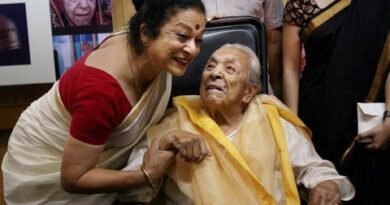Need for Uniform Civil Code is real
Certain violations and contradictions leave the door wide open for our law courts to discriminate between communities in the domain of law
Some of the laws regarding marriage in India violate Articles 14 and 15 of the Constitution, which insist on equality of all citizens. For a glaring example, a Muslim man is allowed four wives at a time while a woman has to restrict herself to only one husband. The husband can terminate his marriage within three months under the talaq rules, but the wife does not enjoy this privilege. She must take the help of khul. Her release is possible only upon payment of compensation to her husband, which may or may not entice him to make him return the mehr or the dower which was supposed to have been paid by him. In the event the husband is not tempted by her offer of compensation, she would have to suffer a lengthy procedure before a council of qazis.
Evidently, these rules are not only unequal and discriminatory but also misogynous, reflecting extreme bias and, one might add, hatred of women, besides their being anti-secular; no one other than a Muslim is allowed this privilege of so many wives with the privilege of a quick divorce. This is Article 44 notwithstanding, a Directive Principle of State Policy enjoining upon the Government the implementation of a Uniform Civil Code for all citizens. When in 1955, Parliament passed the Hindu Code Bill, Prime Minister Jawaharlal Nehru was asked by a Member of Parliament why nothing was being done on the question of a Uniform Civil Code. Nehru’s reply was: “Well, I should like a civil code which applies to everybody, but wisdom hinders. If he (the MP) or anybody else brings forward a civil code, it will have my extreme sympathies. But I confess that I do not think that at the present moment the time is ripe in India for me to try and push it through. I want to prepare the ground for it.”
My anxiety is that these violations and contradictions leave the door wide open for our law courts to discriminate between communities in the domain of law. For instance, whether wearing a hijab in school or college or such additional clothing is appropriate or even essential for some students, but not for others. If good for some, on grounds of either religion or freedom, why cannot another set of students come to classes with swimming suits or bikinis on grounds of freedom and easy accessibility to the school’s swimming pool?
That must naturally bring us to the attention of where does society, State and law draw the line as far as competitive religiosity of the mind that is now seen on an increased scale? More importantly, what does this mean for an avowedly secular State whose Constitution, at least on paper, forbids discrimination on the grounds of religion, caste, gender, race, place of birth, etc? In this context, we cannot avoid the crucial question of a Uniform Civil Code which is, among other things, polygamy, enough to render the country’s claim to be a secular democracy a meaningless one.
Laws, especially in a secular democracy, have to be equal for all citizens. No religious law can be permitted the privilege of superseding the Constitution. Moreover, if even those who currently enjoy the privilege of religious personal laws wish to be governed by uniform criminal laws, there can be no justification for avoidance of a Uniform Civil Code. To avoid this crucial issue any further is fraught with grave consequences for the country’s polity and the very notion of secular democracy.
The issue of a Uniform Civil Code is understandably debatable and controversial, but also unavoidable. Article 14 requires the Government to implement a Uniform Civil Code, although this was enshrined not as a Fundamental Right, but a Directive Principle of State Policy, and therefore not justiciable in courts of law. Successive Governments, which have been prodded by the courts to implement a Uniform Civil Code, have chosen to evade the issue, the foremost reason being keeping a captive vote bank firmly within their grasp. Nehru’s refusal to even touch the question of reform among other communities while pushing the Hindu Code Bill makes it very difficult to deny this charge.
It needs no reiteration that laws have to be equal for all citizens, irrespective of religion, caste or gender. This is particularly so for a country that also calls itself democratic and a secular democracy, on top of it. In other words, the need for a Uniform Civil Code flows from the very concept of secularism, which mandates the complete separation of religion and State.
The argument that such a rigid divorce of faith and State is a western idea and construct does not hold any merit here. Even if one were to argue in favour of an Indian variant of ‘secularism’, ie equal respect for all faiths, the present Constitution’s permitting personal religious laws to prevail for the Muslim community in the matter of marriage and divorce is an unambiguous violation of the stated constitutional right of equality as laid down in Articles 14 and 15.
(The writer is a well-known columnist, an author and a former member of the Rajya Sabha. The views expressed are personal.)
Source: The Pioneer




